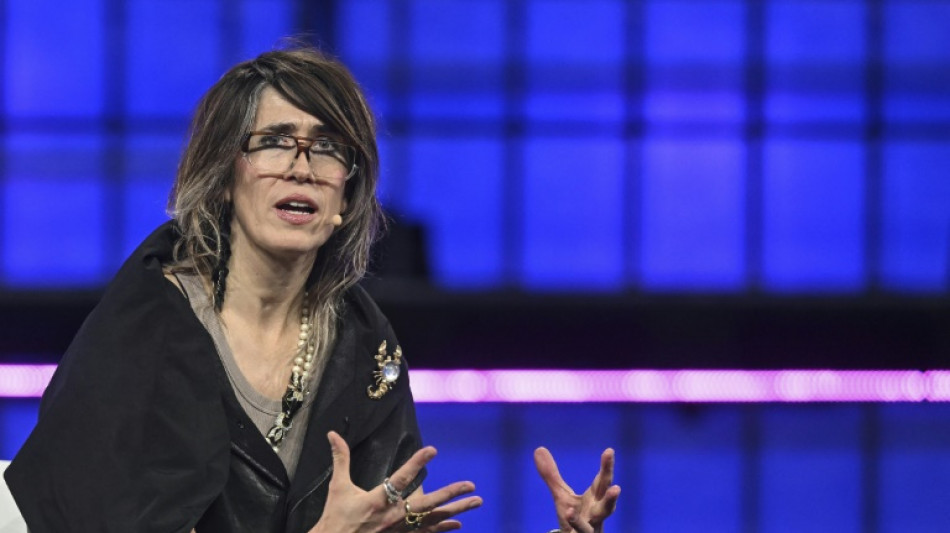
RBGPF
0.1600


Unlike the bulk of her peers, Grammy-winning British singer Imogen Heap is embracing the use of artificial intelligence (AI) in her music as well to set up a music collaboration platform.
"I am excited about AI because I feel maybe it can help humans harness the now," she told AFP on the sidelines of the four-day Web Summit tech conference in Lisbon which wrapped up on Thursday.
The two-time Grammy winner recorded the conversation, as she does with all her interactions with journalists, to feed into her own generative intelligence model called Mogen which was originally created to interact with her fans.
"It’s about empowering a chat bot, basically with a knowledge store, to be able to answer on behalf of me, so that I can get on with being human," said Heap who is best known for her 2005 song "Hide and Seek" that first gained popularity after it was featured in a scene of popular teen drama series "The O.C.".
The 46-year-old singer has used Mogen to create the final part of her new song called "What Have You Done To Me" that was unveiled earlier this month.
"It is interesting because the beginning of the song is done very traditionally in studio, chopped up and everything like that and in a way sounds less human than the AI voice, which sounds bizarrely more human," she said.
- AI production assistant -
Heap said she would eventually like to create music with the help of Mogen live at a concert or in the studio, with the AI playing the role of production and composition assistant.
"It’s basically like a huge sea of tagged audio and words so that in the future, I can walk into my living room or walk into my barn and create music in real time based on ideas I've previously had that can be fed into the system in real time," she said.
The singer also previewed a platform at the Web Summit called Auracles which features tracks along with their certified data, such as the authorisations and conditions stipulated by the musicians for the re-use of their work.
Users will have to pay to be able to remix and sample the sounds using AI, with a third of the revenue going to a climate protection association.
Many artists around the world complain that their music is being fed into generative AI algorithms without thir permission and then used to create new music.
US music industry trade group the Recording Industry Association of America (RIAA) filed a lawsuit in June against AI start-ups Suno and Udio, accusing them of having "cop(ied) the work of an artist and exploit it for their own benefit without consent or remuneration".
- Stop the steal -
Heap is also working with start-up Jen, a platform for generating music using AI, which advocates respect for copyright.
"Instead of like hoovering up all the musical content in the world and just using it for, stealing, they want to build the layer that we want to build, which is an individual song place of permissions to be able to grant access to do certain things with that song," she said.
On the Auracles website, which will be officially launched in December, users will be able to use the Jen service to create tracks with AI in the style of Imogen Heap.
“Everything about ChatGPT is based on human work but none of that is recognised," she said.
“If we become detached from our work and we don't value in any way, it's literally going to be AI against us.
“We need to build in the system what we believe. We have value, we have ideas. So this is what we're doing with Auracles," she added.
S.Suzuki--JT